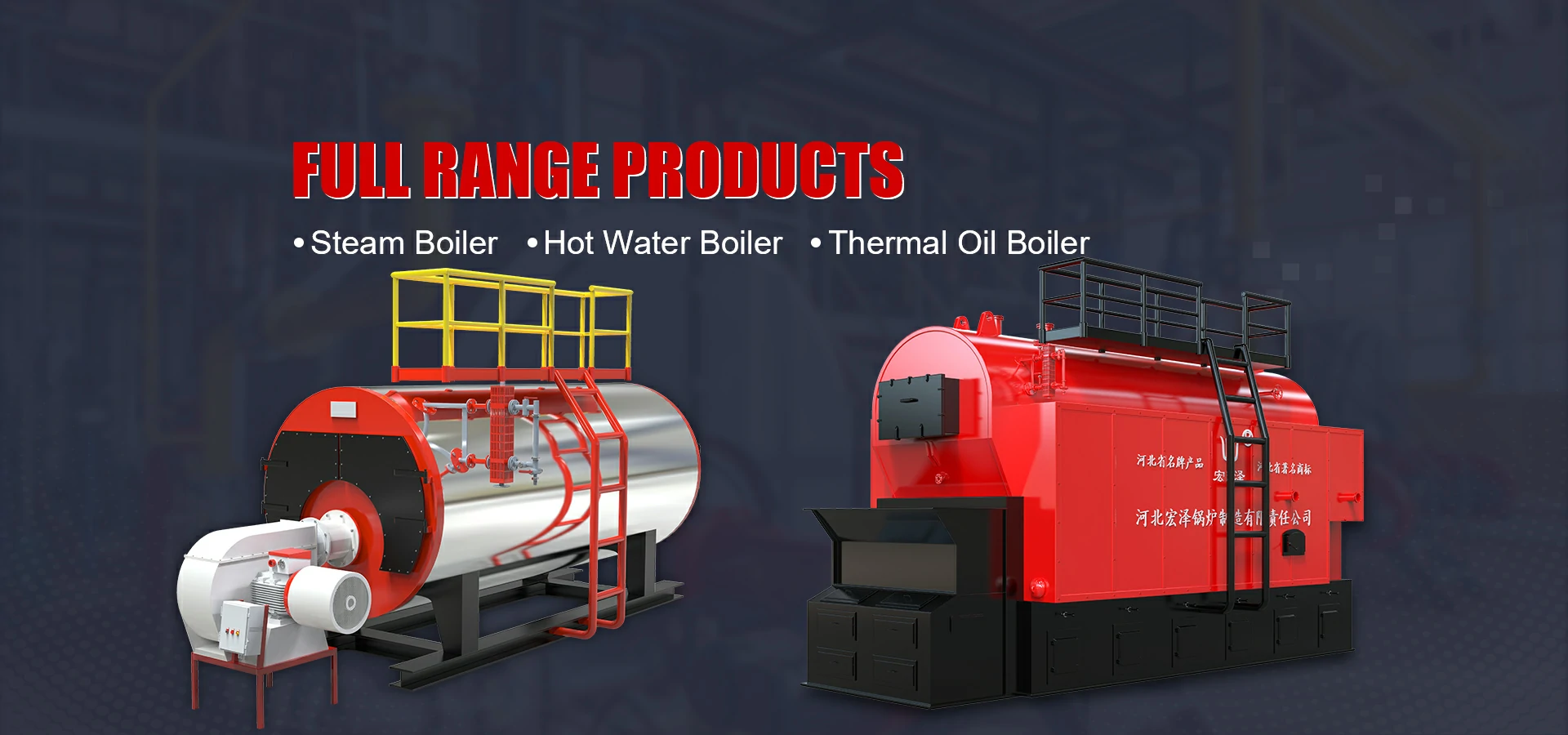
नवम्बर . 13, 2024 23:06 Back to list
thermal oil boiler
Understanding Thermal Oil Boilers Efficiency and Applications
Thermal oil boilers are industrial heating systems designed to provide heat transfer through thermal oils, which serve as a medium for transferring heat to various processes. These boilers are essential in sectors where high temperatures are required, and they have gained significant popularity due to their efficiency, versatility, and reliability.
What is a Thermal Oil Boiler?
A thermal oil boiler operates on the principle of circulating hot thermal oil through a closed-loop system. Instead of water or steam, thermal oils are used because they can withstand high temperatures without transitioning to a gaseous state. This feature allows thermal oil boilers to operate at higher temperatures compared to conventional steam boilers, often exceeding 300 degrees Celsius (572 degrees Fahrenheit).
The boiler's design typically consists of a furnace where fuel is burned, heating the thermal oil circulating through the system. As the oil absorbs heat, it is pumped to various heat exchangers or process equipment. Once it has transferred its heat, the cooled oil returns to the boiler for reheating.
Advantages of Thermal Oil Boilers
1. High Efficiency Thermal oil boilers can operate at temperatures exceeding 300 degrees Celsius with minimal thermal losses. This efficiency translates into lower fuel consumption and reduced operational costs, making them an attractive option for industries with high energy demands.
2. Versatile Applications These boilers are used across various industries, including chemical processing, food production, pharmaceuticals, and textiles. They are particularly favored for processes that require stable and precise temperature control.
3. Safety Compared to water and steam systems, thermal oil systems pose lower risks of pressure hazards since they operate at atmospheric pressure. This reduces the risk of explosive failures, enhancing workplace safety.
4. Temperature Control Thermal oil can maintain a constant temperature for prolonged periods. This characteristic is crucial for processes that are sensitive to temperature fluctuations, ensuring product quality and consistency.
5. Less Downtime Maintenance for thermal oil boilers is generally less intensive than for traditional boilers. The absence of water means fewer concerns regarding scale buildup and corrosion, which helps in minimizing operational downtime.
thermal oil boiler

Common Uses of Thermal Oil Boilers
Thermal oil boilers are utilized across a wide range of industries due to their efficient heating capabilities
. Some of the most common applications include- Chemical Processing In the production of chemicals, precise temperature control is crucial. Thermal oil boilers provide the necessary heat for reactions that occur at high temperatures while safeguarding the integrity of the products involved.
- Food Processing The food industry utilizes thermal oil boilers for processes such as frying, baking, and pasteurizing, where consistent heat is necessary to achieve quality standards.
- Plastics and Rubber In manufacturing plastic and rubber products, thermal oil boilers are used for heating molds and processing materials, ensuring the products are formed correctly and meet quality specifications.
- Textiles The textile industry employs thermal oil heating for dyeing and finishing processes, where precise heat control greatly influences the final quality of the fabric.
Environmental Considerations
While thermal oil boilers are efficient, their environmental impact depends on the type of fuel used. Transitioning to cleaner fuels or implementing waste heat recovery systems can further enhance their sustainability. Manufacturers are increasingly focused on developing thermal oil systems that utilize renewable energy sources, thereby reducing greenhouse gas emissions and promoting a greener approach to industrial heating.
Conclusion
In summary, thermal oil boilers are essential for industries that require efficient and reliable heating at high temperatures. With numerous advantages such as high efficiency, safety, and versatility, they play a crucial role in various applications. As businesses strive for increased efficiency and sustainability, the importance of thermal oil boilers is likely to grow, making them a key player in the future of industrial heating solutions. By understanding their operation, benefits, and applications, industries can better harness the power of thermal oil boilers to optimize their processes and enhance productivity.
-
High-Efficiency Commercial Oil Fired Steam Boiler for Industry
NewsJul.30,2025
-
High-Efficiency Biomass Fired Thermal Oil Boiler Solutions
NewsJul.30,2025
-
High Efficiency Gas Fired Thermal Oil Boiler for Industrial Heating
NewsJul.29,2025
-
High-Efficiency Gas Fired Hot Water Boiler for Sale – Reliable & Affordable
NewsJul.29,2025
-
High Efficiency Biomass Fired Hot Water Boiler for Industrial and Commercial Use
NewsJul.29,2025
-
High-Efficiency Biomass Fired Hot Water Boiler for Industrial Use
NewsJul.28,2025
Related PRODUCTS






















